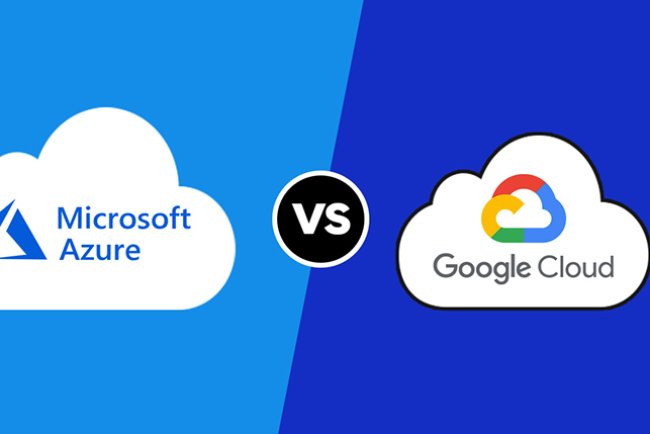Why does Google think Microsoft's licensing terms around Azure are limiting customer choice in the cloud computing space?
Google Cloud is challenging Microsoft’s Azure licensing rules, claiming they restrict fair cloud competition. Discover how licensing costs, vendor lock-in, and regulatory scrutiny could shape the future of cloud services. Google accuses Microsoft of unfair Azure licensing practices that restrict customer choice in the cloud. Learn what this means for competition, costs, and your freedom to choose the right cloud provider.

Why Does Google Say Microsoft's Azure Licensing Limits Customer Choice in the Cloud?
In the ever-intensifying cloud computing race, Google Cloud has accused Microsoft of using unfair licensing practices that restrict customer freedom — especially around Microsoft’s Azure cloud services.
So what exactly is the issue?
Let’s break it down in simple terms.
The Core of the Dispute: Licensing Restrictions
At the heart of Google’s complaint is Microsoft’s licensing model for its popular enterprise software, like:
-
Windows Server
-
SQL Server
-
Office 365
-
Microsoft Exchange
-
Microsoft Teams
Under Microsoft’s current licensing terms, if customers want to run these products on a non-Azure cloud platform (like Google Cloud or Amazon Web Services), they face:
-
Higher licensing costs
-
Reduced flexibility
-
Limited support
-
Usage restrictions
This makes Microsoft software more expensive or technically harder to use on rival cloud platforms, while discounting and optimizing it for its own Azure cloud.
Example: A company may need to buy a whole new license to run Microsoft SQL Server on Google Cloud, even if they already have one — whereas running it on Azure may come with automatic benefits and portability.
SEO Keywords: Microsoft Azure licensing, cloud vendor lock-in, Microsoft vs Google Cloud, Azure software restrictions, SQL Server cloud licensing
What Google Cloud Is Saying
In public statements and regulatory filings, Google Cloud has expressed concern that:
“Microsoft’s restrictive licensing practices unfairly lock customers into Azure, limiting their freedom to choose the best cloud provider for their needs.”
They argue this:
-
Stifles competition
-
Limits innovation
-
Hurts customer flexibility and pricing power
They’ve also hinted that these terms could violate fair competition laws, particularly in regions like the European Union, where regulators are increasingly scrutinizing cloud market monopolies.
Why This Matters for Customers
1. Vendor Lock-In Risks
-
Microsoft’s software becomes cheaper or more integrated on Azure, making it harder for businesses to switch to AWS or Google Cloud without incurring higher costs or losing functionality.
-
This discourages multi-cloud or hybrid strategies, where companies use different cloud providers for different needs.
2. Higher Costs Outside Azure
-
Customers pay more to use the same Microsoft software on other platforms.
-
These added costs inflate total ownership costs, especially for large enterprises.
3. Barrier to Innovation
-
Developers and startups may be discouraged from using Google Cloud or AWS due to complex Microsoft licensing limitations.
-
This reduces fair competition and customer choice in the broader cloud ecosystem.
SEO Keywords: vendor lock-in in cloud, Microsoft licensing issues, Azure vs GCP fairness, cloud platform freedom, enterprise software licensing restrictions
What Microsoft Says in Response
Microsoft has defended its practices by saying:
-
It is committed to “offering customers flexibility and value.”
-
Azure licensing benefits are simply “part of their ecosystem” and “not anti-competitive.”
However, critics argue that bundling such advantages only for Azure — and making licensing harder on competitors — is a subtle way to monopolize its software footprint in the cloud.
How This Is Being Investigated
The issue has reached regulatory bodies, especially in:
-
The European Union (EU)
-
United Kingdom’s Competition and Markets Authority (CMA)
In fact, in 2024, several European cloud providers and Google formally submitted complaints to the EU Commission, alleging that Microsoft’s licensing policy:
-
Breaches fair market principles
-
Inhibits healthy cloud competition
-
Increases the dominance of Azure through indirect pressure
What This Means for the Future of Cloud Computing
If regulators decide that Microsoft’s Azure licensing terms are anti-competitive, we may see:
-
Legal reforms around cloud software licensing
-
Fines or corrective actions against Microsoft
-
More open, fair multi-cloud environments
-
Greater interoperability between platforms
Ultimately, this debate is part of a larger battle for cloud dominance — and customer rights are caught in the middle.
SEO Keywords: cloud competition regulation, Microsoft under investigation, Azure monopoly concerns, Google vs Microsoft cloud war, cloud antitrust laws
Final Thoughts: Transparency, Fairness, and Freedom to Choose
While Azure offers excellent performance and integration, forcing customers into one platform by manipulating software licensing can erode trust in the cloud market.
Cloud users — whether startups, enterprises, or developers — should be able to:
-
Use the tools they want
-
Choose the cloud provider that fits their needs and budget
-
Avoid vendor lock-in tactics that restrict innovation
Google's argument is a call for a level playing field, where competition is based on value and innovation — not licensing loopholes.
Need Help Choosing the Right Cloud Strategy?
Struggling to decide between Azure, AWS, or Google Cloud?
Let GOMSUS Landing Page help you build, scale, and launch your cloud-powered project — fast, flexible, and fully integrated.
Visit now: www.gomsu.in
✅ Compare platforms
✅ Build cloud-native landing pages
✅ Migrate or deploy with expert help
Was this helpful?
Like | Comment |Share
Got thoughts on Microsoft’s licensing practices or your own experience with cloud costs? Let us know below.
What's Your Reaction?






















